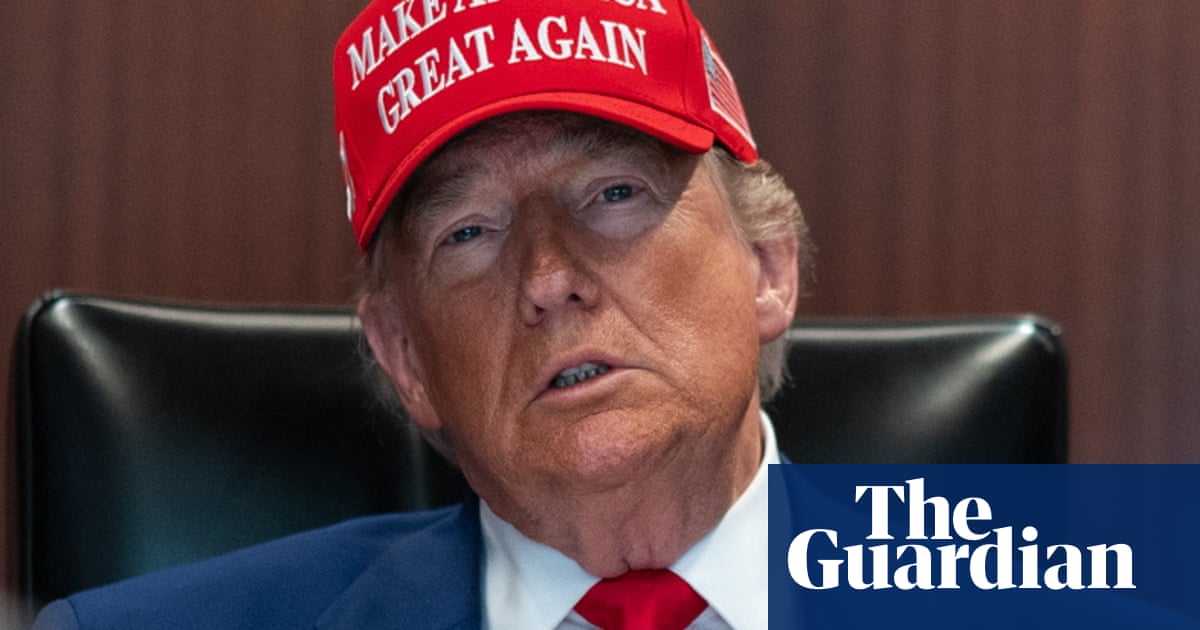Donald Trump, a self-confessed risk-taker, has taken the greatest gamble – not just with his political reputation and the future of the Middle East, but arguably with the whole concept of military intervention as a way to solve intractable geopolitical problems.
If the US president succeeds – and there will be many rival interpretations and metrics of success in the weeks ahead – it is possible he will have disempoweredIran, and diminished the global influence of a regime that has for 40 years sponsored threats against the west. In the process his personal authority will have been enhanced, and his next three years in office will be a triumph that may exacerbate some of his worst authoritarian and impulsive traits.
He will also have allied the US more closely than ever withBenjamin Netanyahu, a man deeply disliked in large parts of the world for Israel’s treatment of Palestinians and its assault on Gaza.
Under such a scenario, America will not be loved, but it will be feared, and from that fear will come deference. After the failures of ground interventions and occupations in Afghanistan in the wake of 9/11 and the Iraq war in 2003, Trump would have re-established the value of limited military intervention.
Equally, however, much could go wrong. Many leaders and diplomats in Europe may well privately be hoping that is the case – not because they have time for the Iranian government, but because they fear Trump’s methods are perilous, and in breach of thenuclear non-proliferation treatyand international law.
China, which has big interests in Iran, will want to make sure this episode does not usher in a unipolar world. Russia will draw lessons, and is already willing to acknowledge the danger of a US win, telling Iran it is willing to do more to help Tehran develop its nuclear capabilities.
Gulf states are alsoexpressing outrage at Trump’s intervention. Arab diplomats said they were trying to square Trump’s military intervention with his extraordinary speech in Riyadh two months ago in which he decried past US military adventurism. “In the end, the so-called ‘nation-builders’ wrecked far more nations than they built – and the interventionists were intervening in complex societies that they did not even understand themselves,” Trump had said.
The Gulf states fear being dragged into a war. Most had thought an irascible Trump needed to allow Iran a right to very limited enrichment of uranium, under close UN monitoring. As an issue it was considered eminently solvable through patient diplomacy – of the kind the Europeans had just embarked on.
Nor is the military conflict over. So far Iran has been out-thought and outmanoeuvred in this war. But it is possible that Trump finds himself sucked into a longer conflict than he intended. Netanyahu has notoriously so far shown himself better at starting conflicts than ending them. Once fully engaged in the Iran conflict, Trump will have to see it through to the end, tying him up in the kind of endless foreign conflict that he promised on the election campaign trail he would abjure.
If Iran refuses to submit, it has options. It could abandon the non-proliferation treaty, deport the UN inspectors and try to rebuild the nuclear programme in secret. Should Tehran still posses a so-far hidden supply of highly enriched uranium, its nuclear scientists may be tempted to try to dash for a crude nuclear device. That would give Tehran time to try to rally support among its battered allies in Lebanon, Iraq and Yemen.
Sanam Vakil, the Middle East specialist at the London thinktank Chatham House, said the US leader perceives of this strike as a one-off. “Trump was careful, he telegraphed the strikes, he sent messages of warning to Iran in advance,” she said. “I think he wants this to end with a negotiation, with a deal and one he can show is a victory in setting back Iran’s nuclear programme.”
But a careful de-escalation after such a US escalation is fraught with risk. Vakil said: “The president is impatient and does not have the bandwidth for protracted negotiation. The Iranians want sanctions relief, but do not know how any longer they can trust Trump, a man they say has repeatedly deceived them.”
The best-case scenario is that Iran settles on a symbolic retaliation, much as it did in 2020, when Trumpordered the assassination of Qassem Suleimani, the Islamic Revolutionary Guards Corps commander. The president might then push Israel to wind down its war and urge Iran to resume negotiations over a new nuclear deal.
Either way, Abbas Araghchi, Iran’s foreign minister, appeared to speak for the region with his assessment. “The events this morning are outrageous and will have everlasting consequences,” he said.
